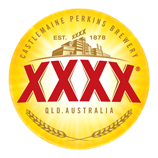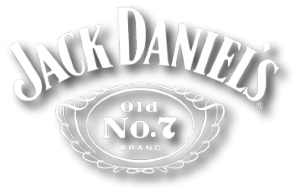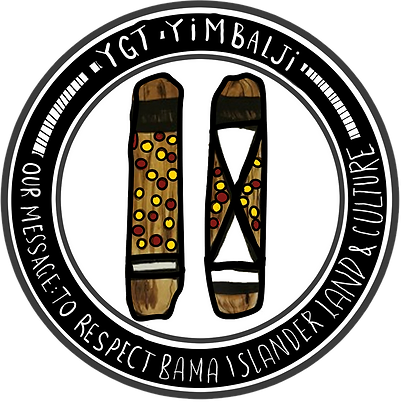Ball Park Music, DZ Deathrays and Tia Gostelow will be the main performers when Brisbane’s Fortitude Music Hall launches on Friday, July 26.
Much-talked-about even before it was built, the venue’s opening night also includes guest spots from Bernard Fanning & Ian Haug (Powderfinger), Patience Hodgson (The Grates), Thelma Plum, Dave McCormack (Custard), Busby Marou, Sam Cromack (Ball Park Music), Sahara Beck and Jeremy Neale.
“The idea for the night was always a celebration of Queensland music, and we’re happy where we got to,” says John ‘JC’ Collins, the one time Powderfinger bassist turned co-owner and manager of Fortitude Music Hall and The Triffid.
The multi-million dollar Music Hall is a partnership between Collins, Paul Piticco & Jess Ducrou of Secret Sounds Group, construction giant Hutchinson Builders (the first three are involved in the Triffid, which opened in 2014 to great success) and Live Nation.
The important element of the Music Hall, set in the middle of Brunswick Mall, is that it offers different sized spaces.
The 3300-capacity room can be transformed into 1200 and 2000, with a smaller upstairs bar-style for 300.
In between is the sister club Triffid for 800 people.
Originally set up to replace the 4000-seat Festival Hall (now an apartment block), the new arrival offers alternatives to the Brisbane scene.
These range from the Zoo (500— 800) to the Tivoli (standing 1500, seated 700) to Brisbane Convention & Exhibition Centre’s Great Hall (4000) to Riverstage at the Botanic Gardens (9500) to Brisbane Entertainment Centre (13,600).
Aside from just gigs, the Music Hall is also looking at comedy, awards ceremonies, industry events and gala dinners.
No wonder then that even before launch, bookings have piled on for the second half of 2019.
Collins speaks with TMN ahead of the launch.
Q: The different sized spaces in the Music Hall could actually see the venue build an act from the ground up.
A: I’m lucky enough to have the Triffid as well, so an act can start off playing in the small room, then do their next gig at The Triffid, and come back to the Music Hall and play the downstairs capacity.
There’s definitely a growth element to what we’re doing, that’s something we did deliberately
Q: You brought up Mark Gibbon to Brisbane from Sydney to book the two venues, what was the specific appeal?
A: He was perfect for the role. Mark had experience in doing three venues in Sydney (for Century Venues), each with different capacities (Enmore Theatre in Newtown, the Metro Theatre in the city, Factory Theatre at Marrickville) so we get someone experienced in managing different sized rooms.
He’s also going to do promotions stuff for Secret Sounds and he was ready to sink his teeth into a new project.
Q: He has a reputation for being pro-indie acts and young talent that need TLC.
A: All of us involved in the two venues have the same aim, to develop young acts.
Behind the scenes, that’s where you get the next Ball Park Music or Violent Soho.
Q: What’s Live Nation’s role in all this?
A: They serve as a minor partner, really, bringing their strength. They’re across everything.
It’s really a Secret Sounds venue in the way it’s run, so it’s really up to us to delver.
They’ve been supportive in getting us some acts.
I’ve been working with them for a year now, and it’s been a good experience.
Q: What do you think of technology where a band can record a gig and have it up online by the end of the night, is that something you’d look at down the track?
A: Definitely. On Powderfinger’s Sunset Farewell last tour, you could walk out straight after the show and buy the CD of the show on the merch desk.
At this point, my focus is on getting the room right and how people move around.
But there are definitely lots of ideas for growth.
Q: Why is the Brisbane scene so buoyant at the moment?
A: I’m not sure. Maybe we have a chip on our shoulder because we’ve always been told we’re not as good as Sydney and Melbourne.
That’s always been my experience.
But there’s a real camaraderie here. People play in each others’ bands, and they go and support each other.
I think having a place like Fortitude Valley, where everything is available in a reasonably short area, is good for a focus.
Q: When you were travelling around the world in your former day job, did you ever come across a club where you thought; ‘wow, if I ever start a club, it’ll be like this?’
A: For sure, I remember going into some marvellous theatres in Europe and the UK.
Like the Apollo in London. As soon as you walk in, you get a great feeling, the ambience and the sense of history.
At the same time, there are a lot of crap places too, from which I’m learning not to make mistakes!
But that’s what we want to do at the Music Hall, as soon as a musician walks in, a friendly face is meeting them and taking them to a very nice green room.
I know what it’s like for a travelling musician. You’re far from home and totally out of your comfort zone. And little things like that really help.
A: I’m lucky enough to have the Triffid as well, so an act can start off playing in the small room, then do their next gig at The Triffid, and come back to the Music Hall and play the downstairs capacity.
There’s definitely a growth element to what we’re doing, that’s something we did deliberately
Originally published on The Music Network by Christie Eliezer on May 27 2019






